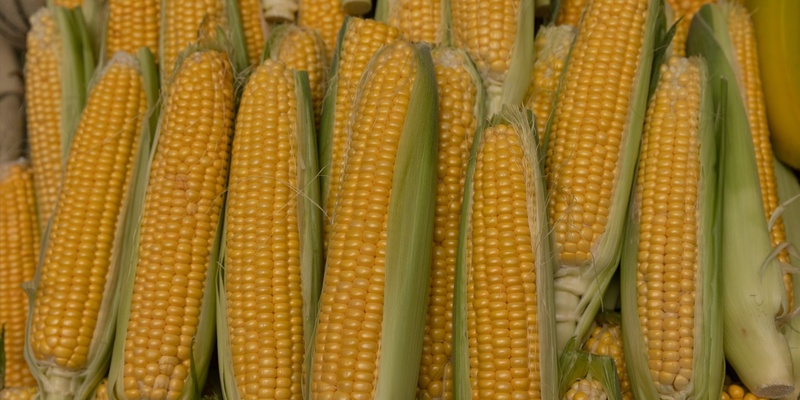SPOTLIGHT: IPPC ePhyto Solution supports Argentina’s paperless export trade
Posted on Mon, 13 May 2024, 07:26

Corn is one of Argentina’s most exported crops, whose trade is boosted by ePhytos © FAO/Cristiano Minichiello
In 2009, Argentina decided to adopt electronic phytosanitary certification of agricultural products to facilitate faster and safer trade with other countries, in a more accurate and timely manner. The country’s officials had also received information from stakeholders involved in trade, specifically exporters, who required electronic certificates when trading with some countries.
After more than a decade of planning and testing its own national system, Argentina adopted the International Plant Protection Convention (IPPC) ePhyto Solution, becoming one of the first countries to do so. Argentina started replacing paper phytosanitary certificates (PCs) with electronic ones, in the trade of all plant commodities.
Thanks to the IPPC ePhyto Solution, Argentina is currently operating 100 percent paperless with the issuance of ePhytos for its exports to Bolivia, Chile, Costa Rica, Guatemala, Guyana, Ivory Coast, Jamaica, Jordan, Panama, Paraguay, Peru, Sri Lanka, the 27 European Union countries and the United States of America.
The IPPC ePhyto Solution is an online system that allows countries to exchange digital phytosanitary certificates called ePhytos to replace paper certificates, hence increasing reliability and reducing errors and fraud. Countries send or receive ePhytos through a centralized exchange system called the Hub without requiring bilateral agreements. Countries without a purpose-built system can use the Generic ePhyto National System (GeNS), a centralized web-based system to create, send and receive ePhytos.
Using ePhytos has made certification quicker and significantly contributed to reducing the country’s carbon footprint. The fundamental decision made over a decade ago has benefited the country in many ways. Although the process had some challenges, for Argentina, the benefits and lessons are more significant.
National commitment produces success

©Participants of the Regional ePhyto workshop in Argentina in 2023
About 15 years ago, Argentina started developing a national system with a web-based platform to prompt remove the manual phytosanitary certificates. The SIG-Fito system was launched in 2012. In addition to supporting ePhytos, it also enabled the issuance of other kinds of certificates, such as certificates for GMO products and performed functions like billing, processing laboratory analysis requests, and linking with customs. It was a substantial improvement to the paper-based system, but still not enough to speed up the exchange of phytosanitary information carried out through paper certificates, a laborious and onerous method prone to errors and fraud.
Thanks to the great work of the ePhyto Steering Group, the United Nations International Computing Centre and the IPPC Secretariat, in 2017, Argentina connected to the Hub of the IPPC ePhyto Solution and started with ePhyto exchange tests in 2018, followed by full adoption in 2020.
Shortly after, Argentina reached a milestone with Chile in 2020 by removing paper Phytosanitary Certificates in all the exchange of plant products between both countries.
During the COVID-19 pandemic when international flights and movements were restricted, e-Phytos ensured timely and effective transmission of phytosanitary information sustaining a smooth flow of agricultural commodities in global trade. In one year, Argentina issued over 20 000 ePhytos for exports to the European Union for approximately 5 000 000 tonnes of plant products. Using ePhytos has helped streamline transactions in plant-based products, reduced ambiguity and increased transparency of operations.
Border processes are now more efficient because ePhytos have significantly minimized the possibility of fraudulent paper certificates being used and arriving at Argentinian customs. Moreover, the IPPC ePhyto Solution allows for verification and replacement of phytosanitary certificates when needed, even before consignments arrive at the border, reducing or eliminating processing delays.
Using the ePhyto system has also increased confidence among authorities and reduced paper usage because no printing is required. According to Servicio Nacional de Sanidad y Calidad Agroalimentaria- the national plat protection organization (NPPO) of Argentina, some companies reported saving up to USD 100 per consignment in courier costs.
Key lessons
During the 18th Session of the Commission on Phytosanitary Measures (CPM-18), held in April 2024, Argentina made a presentation on its success in implementing the IPPC ePhyto Solution, with three fundamental aspects for NPPOs to consider in adopting the system:
-
International harmonization: In using the IPPC ePhyto Solution, countries comply with international standards for phytosanitary measures (ISPM). In particular, Appendix 1 of ISPM 12 provides a harmonized approach, a globally standardized language system and a message structure and exchange of protocols to facilitate trade.
-
Cooperation: Countries must cooperate to advance the development and implementation of ePhyto. Increasing adoption and effective use of the system requires more workshops on the topic, strengthening bilateral contacts, drawing on informal consultations and experience sharing sessions.
-
Troubleshooting: Developing and using contingency plans is key to addressing any unforeseen event such as IT-related challenges that may interrupt or delay exchange of ePhytos and smooth trade.
“EPhyto has multiple benefits for plant products trade. Among them, the reduction of time and costs, the greater assurance of certificates authenticity and the improvement in the efficiency of the certification process and its communication both to the destination country and to those involved in the commercial chain. Argentina has made very good progress with this certification and now we depend on the progress that other countries can make so that ePhyto is the rule in the international trade of grains but not the exception. Electronic documentation in international trade is something that has come to stay and it is essential that Governments accompany and participate in this process”.
Quote from an Argentine export sector actor on the need to implement ePhyto around the world

